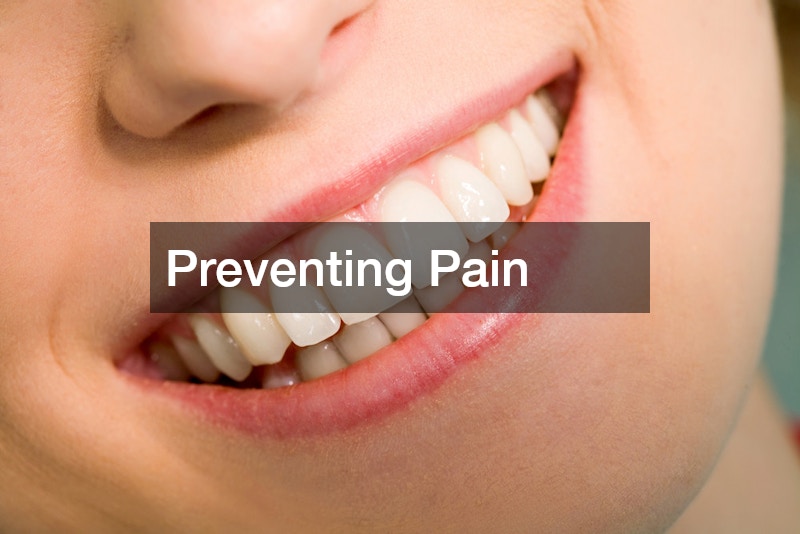10 Ways Quality Oral Habits Impact Overall Health

Quality oral habits are often associated only with a bright smile, but their significance extends far beyond aesthetics. Oral health plays a critical role in overall physical and mental health, affecting everything from digestive processes to self-confidence. Ignoring oral hygiene can result in numerous problems, including tooth decay, gum disease, and even serious health conditions such as heart disease and diabetes. Additionally, the state of your oral health can influence your mental well-being, playing a part in anxiety, social interactions, and self-esteem. Recognizing the interconnectedness of dental habits with overall health is crucial. When maintained, good dental habits serve as a preventive measure, reducing emergency visits to the dentist and ensuring the accessibility of quality care when required. By understanding the broad impact of oral health, individuals can appreciate the importance of establishing and maintaining quality habits. Consulting with dentists regularly complements daily oral practices and supports comprehensive health. There is an inseparable link between our mouths and our bodies.
1. Preventing Pain

One of the most immediate benefits of maintaining quality oral habits is the prevention of pain. Regular brushing and flossing, alongside routine check-ups by a dentist, are pivotal in preventing toothaches and gum problems. When oral hygiene is neglected, cavities and infections can develop, leading to significant discomfort and the need for potentially painful procedures.
Dentists often stress the importance of preventive care as a way to avoid the unpleasant experience of dental pain. Thorough cleanings and proactive treatments can fend off future problems, making preventive habits a key strategy for those wishing to minimize discomfort. By adhering to a routine of quality habits, many painful dental emergencies can be effectively avoided.
Moreover, addressing minor issues through regular dental visits ensures they do not escalate into more serious conditions. Early intervention, supported by good habits, minimizes the risk of complex dental procedures that are often associated with pain. Quality habits are, therefore, a critical component of a pain-free oral health experience.
2. Reducing Anxiety
For many, the prospect of a dental emergency can provoke anxiety, making the establishment of solid dental habits even more vital. Emergency dentists often deal with urgent cases that might have been prevented through consistent oral care. By maintaining good oral hygiene, individuals can lessen the likelihood of unexpected dental problems that necessitate emergency treatment, thus reducing related anxiety.
When a dental emergency does occur, those who regularly practice healthy oral habits are usually better prepared both physically and mentally. They are more familiar with dental procedures and have a trusted relationship with their dental office, further diminishing anxiety levels. Establishing these habits early can make dentist visits less daunting across the board.
Additionally, knowing that you are adhering to recommended oral care routines can provide peace of mind. It removes the constant worry of potential dental issues, allowing individuals to approach life with more confidence. In essence, quality dental habits serve as a mental health buffer against the stress of dental emergencies.
3. Establishing Routines
Quality oral habits form the foundation of a well-established daily routine, fostering discipline and consistency. Visiting the dental office regularly is part of maintaining these routines, complementing daily at-home care. By integrating brushing and flossing into morning and evening rituals, individuals cultivate habits that benefit not just oral health but their overall lifestyle.
Routines revolve around consistency, and maintaining regular dental appointments is a key part of this when it comes to oral health. A structured approach to habits not only ensures mouth health but also spills over into other areas of life, bringing about improvement in time management and organization. The reliability of these routines offers a sense of stability in a busy world.
Moreover, the discipline gained from adhering to dental habits can influence other behaviors, encouraging better health practices overall. Whether it’s time spent at the dental office or at home, maintaining regular routines reinforces the mindset needed for lasting change, driving success in both personal and professional areas.
4. Increasing Accessibility

Good oral habits significantly enhance one’s accessibility to various life experiences, particularly through maintaining healthy dental implants. Dental implants offer a durable solution for missing teeth, but their success largely depends on the patient’s dedication to quality habits. Consistent care ensures that these implants remain in optimal condition, allowing individuals to enjoy all their favorite foods without restriction.
Proper oral care also simplifies the upkeep of dental implants, leading to a more seamless integration into daily life. Caring for these implants faithfully sets the stage for enjoying a wide range of culinary delights that might otherwise be off-limits. Through increased accessibility, dental habits ultimately contribute to a better quality of life.
Additionally, when oral health is prioritized, patients experience fewer limitations during social interactions and outings, further emphasizing the role of dental habits in enhancing life’s accessibility. For those with implants, good oral hygiene is the key to sustaining a carefree lifestyle. In this way, the importance of quality habits is underscored as they provide a foundation for full participation in life’s activities.
5. Improving Confidence
A confident smile is often the result of dedicated oral care, supported by cosmetic dentistry services. Cosmetic procedures, such as whitening or straightening, have the power to transform smiles, bolstering self-esteem and confidence. However, the long-term success of these benefits depends on the continuation of quality oral habits.
Regular brushing, flossing, and visits to a cosmetic dentist office help preserve the results of cosmetic interventions. Individuals who invest in quality habits can maintain their best appearance, enjoying an enduring boost in confidence. A bright, healthy smile opens doors, positively affecting personal and professional opportunities.
The positive reinforcement gained from a beautiful smile can inspire individuals to pursue additional goals, both in oral care and beyond. The self-assurance gained from good habits propels individuals to project confidence in all their endeavors. Ultimately, quality dental habits provide both immediate and ongoing benefits to one’s self-esteem and overall mood.
6. Teaching Responsibility
Quality oral habits instill responsibility and discipline, especially when it comes to caring for teeth implants. These attributes are invaluable, as they extend beyond oral care into broader aspects of life. By making a commitment to regular oral hygiene and consistent check-ups, individuals cultivate a sense of duty and diligence.
The significance of oral care becomes even more pronounced when teeth implants are involved, highlighting the need for meticulous attention to prevent complications. This responsibility reinforces practical life skills such as time management and consistency. Regular attention to oral health conditions, like implants, nurtures a proactive attitude.
Such habits teach individuals the cause-and-effect relationship between their actions and consequences, inspiring a broader appreciation for personal responsibility in various contexts. As these habits become second nature, managing other facets of life seems more manageable. Thus, oral care serves as foundational stewardship, formative for a structured life.
7. Inspiring Family

The establishment of quality habits is particularly important for families, as it sets a precedent for younger members. Pediatric dentists emphasize the significance of cultivating good oral hygiene from an early age. When parents model these habits, they inspire their children to adopt similar practices, potentially leading to a lifetime of healthy oral choices.
Family-wide commitment to oral health brings shared benefits, fostering communication and mutual encouragement. Parents who reinforce proper oral care during family routines, including regular visits to a pediatric dentist, see the benefits extended across generations. This collective approach reinforces the value of prevention and maintenance.
When quality habits become a family tradition, children learn to appreciate the importance of health and well-being. They carry these positive behaviors into adulthood, ensuring that oral health remains a priority. This familial focus on dental habits lays a foundation for both individual health and a healthy community structure.
8. Choosing Joy
Quality habits contribute to a sense of joy, particularly when individuals feel proud of their smiles crafted through diligent care. A cosmetic dentist office often hears from clients about the happiness that comes with showcasing a healthy, beautiful smile. For many, the confidence to smile freely is one of the greatest rewards of maintaining oral health.
Engaging in good oral hygiene allows individuals to express their emotions without reservation, knowing they have a bright, inviting smile. Such joy is contagious, spreading positivity to those around them. Oral habits pave the way for this authentic expression, enhancing personal interactions and relationships.
Moreover, the satisfaction derived from excellent oral care extends beyond vanity, contributing to an overall sense of well-being. This emphasis on joy underscores the importance of quality habits, as they unlock deeper happiness and satisfaction in life. A commitment to healthy teeth and gums translates to joyful living.
9. Following Recommendations
Adhering to dentists’ recommendations is integral to maintaining overall health, illustrating the critical role of dental habits. Sedation dentists often highlight the importance of following prescribed care instructions to ensure a positive outcome in complex or anxiety-provoking treatments. Trust in professional guidance reinforces excellent oral hygiene practices as part of comprehensive care.
When patients adhere to recommendations, individuals mitigate risks associated with advanced dental procedures. These strategies help show that good habits translate to more than just basic care; they align with long-term health goals. Adherence to professional advice underscores the value of investing in oral health.
Proactive engagement with dental care ensures stability in oral health, which is a vital component of systemic well-being. The collaborative relationship between patients and dentists fosters effective dialogue and customized care plans, emphasizing a partnership based on mutual success. These strategies link successful oral care with exclusionary health maintenance.
10. Aiding Digestion

Healthy habits directly contribute to efficient digestion, as a balanced oral environment supports the initial stages of the digestive process. Dentists commonly stress the importance of thorough chewing and salivation as they play essential roles in breaking down food. A healthy mouth sets the stage for effective digestion and nutrient absorption, essential for overall health.
When oral hygiene is prioritized, the risk of dental issues that impede effective chewing diminishes considerably. Strong teeth and gums facilitate the mechanical process of digestion, while adequate saliva production begins chemical breakdown. Quality dental habits ensure that no aspect of this initial phase is interrupted.
Furthermore, healthy oral practices support gut health by limiting the presence of harmful bacteria that can transfer from the mouth to the digestive system. A preventive approach towards oral care aids in maintaining a balanced microbiome, significantly impacting overall health and wellness. Quality oral care assists this foundational physiological process, uniting oral and systemic health.
Quality oral habits are fundamentally intertwined with general health and well-being. They prevent mouth pain, reduce anxiety, and foster routines that benefit everyday life. Additionally, they enhance accessibility to experiences, boost confidence, teach responsibility, and inspire family participation. These habits also bring joy, encourage adherence to professional care recommendations, and aid in digestion. The cumulative benefits of quality oral habits are undeniable, underscoring their role as an essential component of a healthy lifestyle. By prioritizing oral health, individuals ensure a more vibrant and stress-free existence.